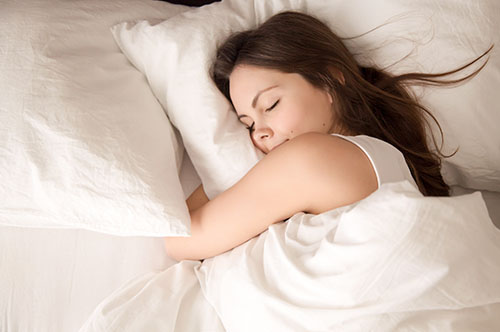Understanding the Dangers of Teeth Grinding and How to Stop It
Teeth grinding, known in the medical community as bruxism, is a prevalent condition spanning various demographics and age groups. This condition often transpires unbeknownst to the individual, predominantly during sleep, though instances of it manifesting throughout the day are not uncommon. At a cursory glance, the act of grinding or clenching one’s teeth may appear innocuous. However, the potential repercussions of neglecting this condition are far-reaching and can lead to significant health issues. This detailed guide is designed to illuminate the underlying causes, potential hazards, and viable solutions for this frequently underestimated health concern.
What Exactly is Teeth Grinding?
Teeth grinding, or more formally referred to as bruxism, involves the excessive gnashing, grinding of the teeth, and/or the clenching of the jaw. This affliction is surprisingly widespread, affecting a considerable segment of the population. Nonetheless, a large number of individuals afflicted with bruxism remain oblivious to their condition until it escalates to more serious complications. Bruxism is categorized into two distinct types based on the time of occurrence: awake bruxism, which takes place during the day, and sleep bruxism, which occurs at night. The latter category, sleep bruxism, poses a challenge for self-diagnosis as the individuals affected are typically unaware of their condition due to it occurring while they are asleep.
The phenomenon of bruxism is multifaceted, with various factors contributing to its onset. Understanding these factors is crucial for individuals seeking to mitigate the effects of bruxism or to prevent its occurrence altogether. Furthermore, recognizing the signs and symptoms of bruxism plays a pivotal role in early detection and intervention, which can significantly reduce the risk of long-term dental and health complications. Through an exploration of the causes, dangers, and solutions associated with bruxism, this guide aims to provide comprehensive insights into managing and overcoming this condition, thereby promoting better oral and overall health among those affected.

Understanding the Underlying Causes of Bruxism
Bruxism, commonly known as teeth grinding, is a condition that affects many individuals, often unconsciously during sleep or in times of stress. This involuntary act can lead to various dental health issues, including tooth wear, enamel erosion, and jaw discomfort. Identifying the root causes of bruxism is crucial for effective treatment and prevention. Here, we explore several key factors that contribute to this condition.
The Impact of Stress and Anxiety
One of the primary contributors to teeth grinding is the presence of high stress or anxiety levels. In today’s fast-paced world, stress has become a common ailment affecting individuals of all ages. This psychological stress often manifests physically, with bruxism being one of the notable symptoms. The body’s natural response to stress may include clenching the jaw or grinding teeth, particularly during sleep when the individual is not consciously able to control these actions.
Dental Misalignment Issues
Another significant factor in the development of bruxism is the misalignment of teeth, also known as malocclusion. When the upper and lower teeth do not align properly, it can lead to an unnatural grinding motion as the jaw seeks a comfortable resting position. This misalignment can be a result of various dental issues, including crowded teeth, missing or extra teeth, and misshapen teeth, contributing to the propensity to grind.
Sleep Disorders and Their Connection to Bruxism
Sleep disorders, notably sleep apnea, exhibit a strong correlation with bruxism. Sleep apnea is a condition characterized by pauses in breathing or periods of shallow breathing during sleep. These interruptions can trigger reflexive responses in the body, such as teeth grinding, as part of an effort to reopen the airway. Consequently, individuals suffering from sleep disorders may experience more frequent or severe episodes of bruxism.
The Role of Medications and Stimulants
Certain medications, particularly those used to treat psychiatric conditions, have been linked to an increased risk of bruxism. Additionally, stimulants like caffeine and tobacco may exacerbate the tendency to grind teeth. The stimulating effects of these substances can lead to increased muscle activity in the jaw, promoting a grinding action. It is essential for individuals who consume these substances regularly to be aware of their potential impact on dental health.
Lifestyle Habits and Their Influence
Lifestyle choices, including smoking, excessive alcohol consumption, and high levels of caffeine intake, are also known to contribute to the development of bruxism. These habits can interfere with the quality of sleep, leading to a restless night where bruxism is more likely to occur. Furthermore, alcohol and caffeine can increase muscle activity in the jaw, similar to the effects of stimulants, thereby heightening the risk of teeth grinding.
Understanding Bruxism: Signs and Symptoms
Bruxism, or teeth grinding, is a condition that often goes unnoticed but can lead to significant dental health issues if left untreated. The ability to identify the early signs of bruxism is crucial for ensuring that those affected can seek the necessary treatment before any serious damage occurs. Below, we explore the common symptoms associated with this condition in more detail.
One of the most noticeable indicators of bruxism is the sound of teeth grinding or clenching during sleep. This symptom is often first identified by a partner or family member who hears it. The grinding noise can be intermittent or continuous but is a clear sign that one should consult a dental professional.
Upon waking, individuals with bruxism may experience a range of uncomfortable symptoms, including persistent headaches that seem to originate deep in the temples. Jaw pain or soreness is also common and can be particularly pronounced in the morning. This discomfort may extend to the facial muscles, making daily activities like chewing or speaking unusually painful.
The physical impact of bruxism on the teeth and mouth is significant. Continuous grinding can lead to noticeable damage to the teeth, such as chipping, flattening, or increased sensitivity. The gums and jaw muscles can also suffer, with potential for receding gums and a weakening of the jaw’s structural integrity. These issues not only affect one’s oral health but can also alter the overall appearance of the mouth and smile.
Another critical aspect of bruxism is its effect on sleep quality. The act of grinding one’s teeth can disrupt the natural sleep cycle, leading to fragmented or non-restorative sleep. Consequently, individuals may find themselves battling fatigue during the day, which can affect productivity, mood, and overall well-being.
Recognizing these signs and symptoms is the first step toward addressing and managing bruxism effectively. If you or someone you know is experiencing any of these issues, it’s essential to consult with a dental professional who can provide a proper diagnosis and discuss potential treatment options. Early intervention can prevent further damage and help maintain both oral health and quality of life.

The Risks Associated with Teeth Grinding
Teeth grinding, medically known as bruxism, is a condition that, if left unaddressed, can have far-reaching consequences on an individual’s oral health and overall wellbeing. The act of grinding or clenching the teeth might seem harmless or even go unnoticed by many, but its implications are anything but benign.
Impact on Oral Health
One of the most immediate and noticeable effects of persistent teeth grinding is the damage it inflicts on the teeth themselves. Individuals suffering from bruxism may experience accelerated tooth wear, leading to diminished tooth structure. This can result in sensitivity and, in severe cases, the need for dental procedures to restore the tooth’s integrity. Additionally, the excessive force exerted on the teeth can cause chips, cracks, or even fractures, posing a significant risk to oral health. Beyond the teeth, bruxism can also affect the jaw, potentially leading to damage to the temporomandibular joint (TMJ) – a critical component in the mechanics of jaw movement.
Effects on Wellbeing
The repercussions of teeth grinding extend beyond the physical damage to teeth and jaw. The condition is often linked to stress and anxiety, with the act of grinding frequently occurring unconsciously during sleep or in times of stress. This can create a vicious cycle where stress leads to bruxism, which in turn exacerbates stress and anxiety levels, impacting the individual’s overall quality of life. The discomfort and pain resulting from the constant grinding can further contribute to stress, creating an ongoing loop of discomfort and anxiety.
Relationship with TMJ Disorder
Chronic teeth grinding is a leading cause of temporomandibular joint disorder (TMJD), a condition characterized by pain and compromised movement of the jaw joint and the surrounding muscles. Individuals with TMJD may experience difficulty in chewing, yawning, and speaking, accompanied by a clicking or locking sensation in the jaw. The persistent strain placed on the TMJ by bruxism can lead to inflammation and long-term damage, necessitating medical or dental intervention to alleviate the symptoms and prevent further damage.
Comprehensive Guide to Mitigating Teeth Grinding (Bruxism)
Teeth grinding, medically known as bruxism, can be a troublesome condition, but it’s not insurmountable. Tackling this issue requires a holistic approach that addresses the underlying causes and mitigates the adverse effects on your dental health. Here, we explore several strategies to manage and ultimately stop teeth grinding.
1. Mastering Stress Management
It’s well-documented that stress plays a significant role in bruxism. Managing stress isn’t just beneficial for your mental health; it’s crucial in alleviating teeth grinding. Incorporating stress-reduction techniques into your daily routine can have a profound impact. Consider practices such as:
- Meditation and Mindfulness: These practices can significantly lower stress levels, creating a sense of calm that permeates your day and soothes the urge to grind your teeth.
- Regular Exercise: Physical activity is a powerful stress reliever. Whether it’s a brisk walk, a session at the gym, or yoga, find an activity that you enjoy and make it a part of your life.
- Therapy or Counseling: Sometimes, talking through your stresses with a professional dentist can help manage them more effectively, reducing instances of teeth grinding.
2. Orthodontic Solutions
Misalignment of teeth, or malocclusion, can contribute to bruxism. In such cases, orthodontic treatment may be necessary. Solutions can include:
- Braces: Traditional braces can correct misalignments over time, thus reducing the pressure and the subsequent grinding.
- Clear Aligners: For adults seeking a less noticeable option, clear aligners offer a way to straighten teeth without the aesthetic concerns of traditional braces.
3. The Role of Mouthguards
A straightforward and effective way to protect your teeth from the effects of grinding is the use of mouthguards. These devices, often custom-fitted by your dentist, create a barrier that protects teeth from wear and tear. While mouthguards don’t stop the act of grinding, they significantly reduce its damaging effects.
4. Lifestyle Adjustments for Reducing Bruxism
The consumption of stimulants like caffeine and tobacco can exacerbate teeth grinding. Making conscious lifestyle adjustments can help:
- Limit Caffeine Intake: Reducing or eliminating beverages like coffee, tea, and certain sodas can decrease instances of bruxism.
- Avoid Tobacco: Smoking or using tobacco products can increase muscle activity related to grinding, so cutting down or quitting can be beneficial.
5. Addressing Sleep Disorders
Often, bruxism is linked to underlying sleep disorders such as sleep apnea. Addressing these conditions can not only improve your overall health but can also significantly reduce or even eliminate teeth grinding. Treatments vary based on the disorder but may include:
- CPAP Machines for Sleep Apnea: Continuous Positive Airway Pressure (CPAP) machines help keep airways open, improving sleep quality and reducing the likelihood of grinding.
- Behavioral Changes: Adjustments in sleep hygiene, such as establishing a regular sleep schedule or creating a more conducive sleeping environment, can also help.

Tips for Maintaining Good Oral Health
In the quest for radiant health and vitality, oral hygiene plays a starring role—yet it’s often overlooked. Beyond the basics of brushing and flossing lies a world where your mouth’s well-being is a gateway to your overall health. One prevalent issue that underscores this connection is teeth grinding, or bruxism. This guide not only shines a light on bruxism but also charts a holistic path to superior oral health, ensuring your smile stays vibrant for decades.
The Cornerstone of Oral Wellness: Regular Dental Visits
The foundation of maintaining oral health is anchored in regular dental check-ups. Far from the mundane task many consider it to be, these visits are vital. They stand at the forefront of detecting and addressing bruxism along with a plethora of other dental concerns. Early detection is key—it simplifies treatments and minimizes costs, setting the stage for a lifetime of healthy smiles. Entrusting your oral health to professionals allows for a personalized care approach, tailored to identify and treat potential issues before they escalate.
Nutrition: The Unsung Hero of Oral Health
What we eat profoundly impacts our dental health, influencing conditions such as bruxism. The connection between diet and oral health cannot be overstated. Sugary foods, for instance, are notorious for fostering tooth decay, which not only deteriorates your teeth but can also intensify teeth grinding. On the flip side, a diet abundant in vitamins and minerals acts as a fortress, fortifying your teeth against dental problems. It’s about creating a balance; opting for foods that nourish your body and your teeth, thereby reducing the risk of bruxism and other oral health issues.
The Role of Sleep Hygiene in Preventing Nighttime Bruxism
A pillar of oral health that deserves its spotlight is the quality of your sleep. Nighttime bruxism is a stealthy foe, and combating it requires a solid foundation of rest. Poor sleep doesn’t just leave you tired—it can escalate stress, a notorious trigger for teeth grinding. Investing in good sleep hygiene is an investment in your oral health. This includes establishing a consistent sleep schedule, cultivating a serene sleeping environment, and steering clear of stimulants before bedtime. These practices don’t just fight bruxism; they enhance your overall health and well-being.
Conclusion
While bruxism may initially appear to be a minor inconvenience, its prolonged impact on both oral health and general well-being warrants attention and action. Acknowledging the symptoms, comprehending the underlying triggers, and implementing targeted strategies to mitigate this condition are imperative steps in safeguarding your oral health. Should you or someone close to you be grappling with bruxism, seeking professional counsel is crucial. Dental experts can furnish tailored guidance and treatment solutions, aimed at managing and alleviating the repercussions of teeth grinding. Through proactive and informed measures, you can ensure the enduring health and brilliance of your smile, underscoring the significance of a comprehensive approach to oral wellness.
https://www.google.com/maps?cid=10725474417078119454
